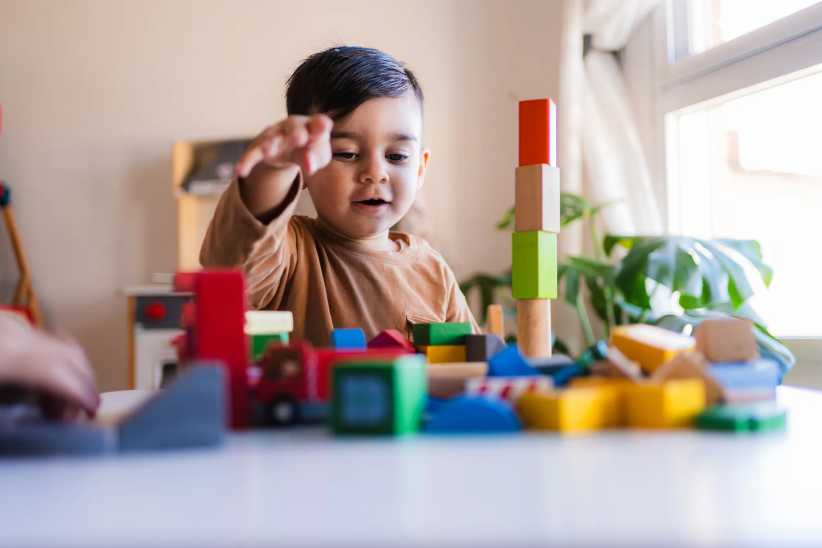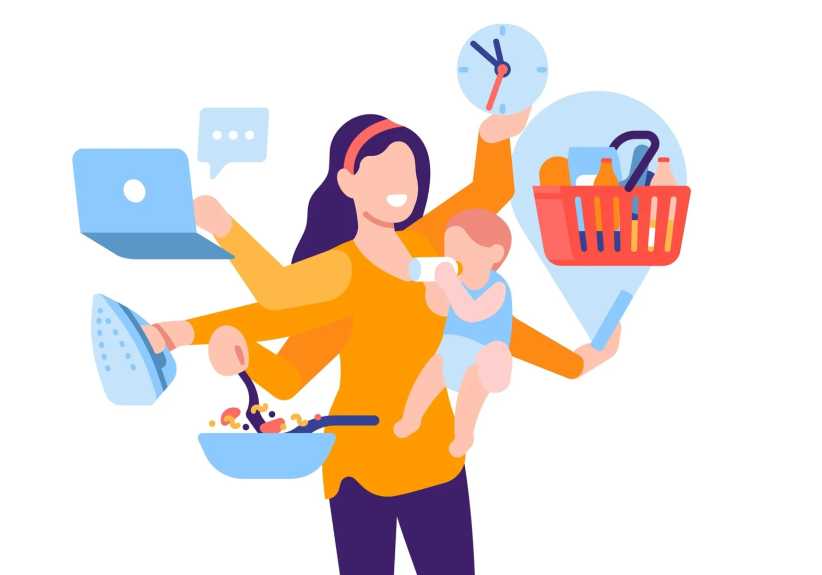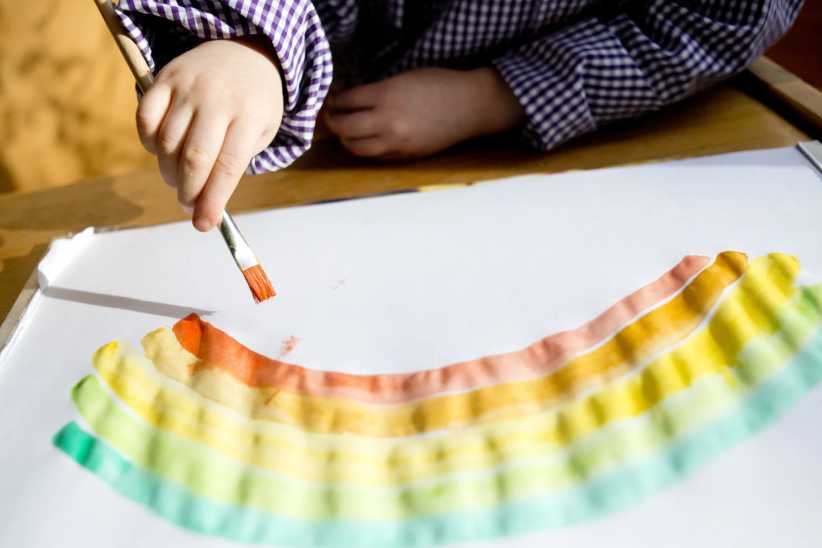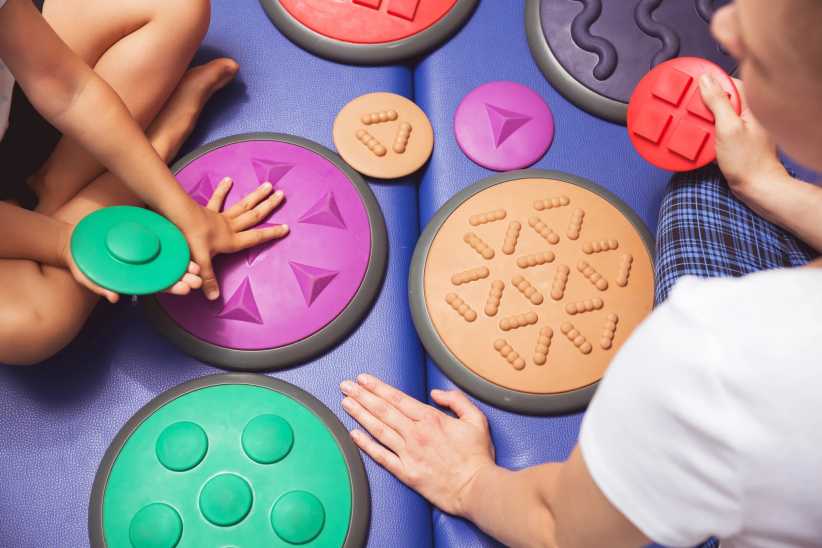
Johnny Depp v. Amber Heard Trial: What Parents Need to Know
Children who love Johnny Depp as the witty and eccentric pirate Captain Jack Sparrow in Disney’s Pirates of the Caribbean movies are now seeing him in a real-life role they never expected: Plaintiff in a $50 million defamation lawsuit against his ex-wife, actress Amber Heard.
The trial has been streamed and broadcast almost everywhere since it began in April. Allegations of physical and sexual violence, drug abuse and toxicity are being brought up by both sides. Graphic witness testimonials prompt viewer-discretion chyrons every time the trial airs. But those warnings mean nothing in an age of social media when children are inundated with clips, reels, posts and comments about the case, most of which spotlight instances of abuse and other topics many kids are far too young to understand.
Johnny Depp v. Amber Heard: What’s the Lawsuit About?
It’s easy for celebrities to choose to air their dirty laundry on TV. As adults, we can choose to avoid watching. But if your child has a social media account, or if they happen to be in the room while someone is watching it on TV, chances are they’ve already seen the case unfold—a trial that includes graphic testimonies of things you probably don’t want them to learn from the personal lives of celebrities.
There’s a lot happening in this trial. There’s so much that even many adults aren’t able to follow the full scope. To make sense of it all, let’s start with what the trial is based on: Depp is suing Heard for defamation after she wrote an op-ed for the Washington Post referring to herself as a “public figure representing domestic abuse.” The actress is counter suing, alleging that her ex-husband defamed her by saying her allegations of abuse are untrue.
Are Children Old Enough to Understand the Trial’s Heavy Topics?
Needless to say, the trial has become a sort of “war of the roses” and a he-said she-said situation. So far, the lines are blurred between the truth and what could possibly be false accusations from either side. The celebrity angle, the countless memes and sensational headlines could have teens and even tweens following the trial, but there are a lot of heavy topics being brought up. Are they even old enough to understand the magnitude of what’s going on here?
Darby Fox, child and adolescent family therapist and author of Rethinking Your Teenager, explained that how much they understand really depends on age.
“As with anything we do with kids, you want to break it up into what age they are because that gives us an idea on how much they can take in,” Fox explained. “For teenagers, they probably look at the trial and engage in the drama of the celebrity. They probably don’t think too much about it. They like the back-and-forth drama that is appealing. They don’t really think too deeply about it because they’re so overexposed to all of this.”
A lot of concern lies with children ages 13 or 14 and younger. Kids this age may feel disappointed or be confused as to why these beloved characters—in this case Depp’s Captain Jack Sparrow and to some extent Heard’s Mera in Aquaman—are in states of disarray and stress on national TV.
“You can’t put the news on or pick up a paper that doesn’t have one or both their faces on it. And they’re in a very distorted or distressed appearance. It’s alarming because somehow we always think celebrities represent what the good part of life is like, so it’s very unsettling to see,” Fox said.
Domestic Violence, Sexual Assault and Substance Abuse
Domestic violence is a central theme in the trial. In addition, Heard is alleging to have been sexually assaulted by Depp.
For some children—especially those with social media accounts—this could be their first time even hearing the phrase “domestic violence.” Because of this, it’s especially important for parents to help their kids understand what it is, explained Jane Winfield, a licensed social worker at the Pleasantville Wellness Group in Westchester County.
“It gets a lot of critical facts wrong. It’s really important to help kids zoom out from the tree in this case so they can see the big picture of the forest,” Winfield said. “Redirect the conversation away from the trial and more toward talking about what domestic violence is.”
Winfield explained there are several points parents should keep in mind when talking about domestic violence with their tween and teens, including:
- Domestic violence is overwhelmingly a gender-based violence. “Overwhelmingly, we see there is a male perpetrator and a female or female-identifying victim, so much so that we have over 4,000 deaths a year of women attributed to domestic violence,” Winfield explained. According to the Centers for Disease Control (CDC), about one in five women and one in seven men report having experienced severe physical violence from an intimate partner in their lifetime. Known as intimate partner violence, this type of abuse can occur in both heterosexual and same-sex relationships. About one in five women and one in 12 men have experienced contact sexual violence by an intimate partner.
- Despite these statistics, men can still be victims. “We also have to help teens and tweens understand that boys and men can—and have—been victims of intimate partner abuse,” Winfield added. “The most important thing here is that one doesn’t cancel out the other. We can say that women are the vast majority of victims, but also boys and men are victims.”
The trial can provide an opportunity to parents to explain that abuse can happen to anyone, Fox added.
“It gives us an opportunity to say that this can go both ways. A woman can be abusive to a man, to children, to another woman. And men can do the same,” Fox explained. “Take the trial as a teaching moment to tell kids how destructive this is. It’s ruining these two people’s lives. This is why we don’t touch people. It’s not ok to physically or emotionally treat other people this way.”
The trial also provides an opportunity to teach kids about the dangers of illegal drug use and drug abuse.
“It’s ok to talk to your kids about how with celebrities, it seems so glamorous to have all this money and fly back and forth on private flights. But with drugs and alcohol, it quickly can go awry,” Fox said. “We can never predict how drugs or alcohol will impact people.”
Reluctance for Victims to Speak Out
Depp calls Heard’s accusations of abuse false. Many people who are following the trial firmly believe that Heard is lying, even during her graphic and detailed testimony recently alleging violence and sexual assault by Depp. In the court of public opinion—specifically TikTok—the hashtag #justiceforjohnnydepp has 7 billion views and counting. The hashtag #justiceforamberheard has approximately 26 million views on the same platform.
With a powerful, wealthy man in the courtroom, and a woman alleging to have been on the receiving end of abuse, this can easily be perceived as a form of victim blaming. But is it? Ultimately, we’ll have to wait for the jury to decide, but in the meantime, how do parents explain the dangers of false accusations and victim blaming? It starts with zeroing in on the most useful way to talk about the trial with kids, explained Winfield.
“It’s really helpful to step back from the trial and reclaim the narrative that everything about this trial is toxic and it shouldn’t be how any victim is treated,” Winfield said. “If I’m a parent, I need my kid to understand what domestic violence is and that victims need to be believed and supported. My fear is that what young adults or teens will take away from this story is a fear of reporting.”
The trial, Winfield goes on to explain, could make abuse victims reluctant to come forward. Amber Heard, whether she’s being truthful, lying or something in between, has become the brunt of many social media jokes and memes making fun of her testimony. This can easily prompt domestic and sexual violence victims to wonder: Will I be minimized? Not believed? Will I be called a liar?
“That’s where I think this trial is very unhelpful. It’s teaching young people who may not have the cognitive skills to differentiate how this is different from their own lives. It does real detriment to future victims,” Winfield explained.
Tips For Talking to Your Kids about the Johnny Depp v. Amber Heard Trial
Here are some quick tips parents can use when talking to their kids about this extremely popular trial and similar news events:
- Limited Exposure: Parents should limit exposure on social media not only of the Johnny Depp v. Amber Heard trial, but other mature news topics, too. “Most of what is making social media is not happy topics. They’re pretty heavy things. For any child or teenager, the way they learn or build knowledge is through experience. So, if they haven’t experienced it, it’s very hard to really understand. That is part of the danger of social media,” according to Fox.
- Watch What Your Child is Watching: It’s important to know what your child is looking at on the phone, said Fox. Parents can add a more reasonable voice to what they’re seeing, or just help explain it.
- Keep it Simple: Sometimes, you don’t need a lengthy explanation on things. While the topics within the trial are heavy, it’s OK to keep your talking points short and succinct: Don’t do drugs. It’s never ok to physically harm someone. It’s not OK to have sex with someone if it isn’t consensual, Fox explained.
Helpful Resources for Talking To Your Kids About Hard Topics
For more information on how to talk to your children about difficult topics, these resources are available:
- American Psychological Association: How to talk to children about difficult news.
- Common Sense Media: How to talk to kids about difficult subjects.
If you or someone you know is experiencing abuse or drug addiction, here are some resources that can help:
- Recovery Centers of America at Raritan Bay: A drug and alcohol inpatient treatment facility that serves communities in northern New Jersey and the New York City area.
- National Domestic Violence Hotline: (800-799-SAFE) The hotline is available 24 hours a day, seven days a week and 365 days a year to provide essential tools and support to help survivors of domestic violence.
Psst… Check out Kim K’s Dangerous Diet Gives Teens & Tweens Unhealthy Body Image













